- April 12, 2025
-
-
Loading

Loading
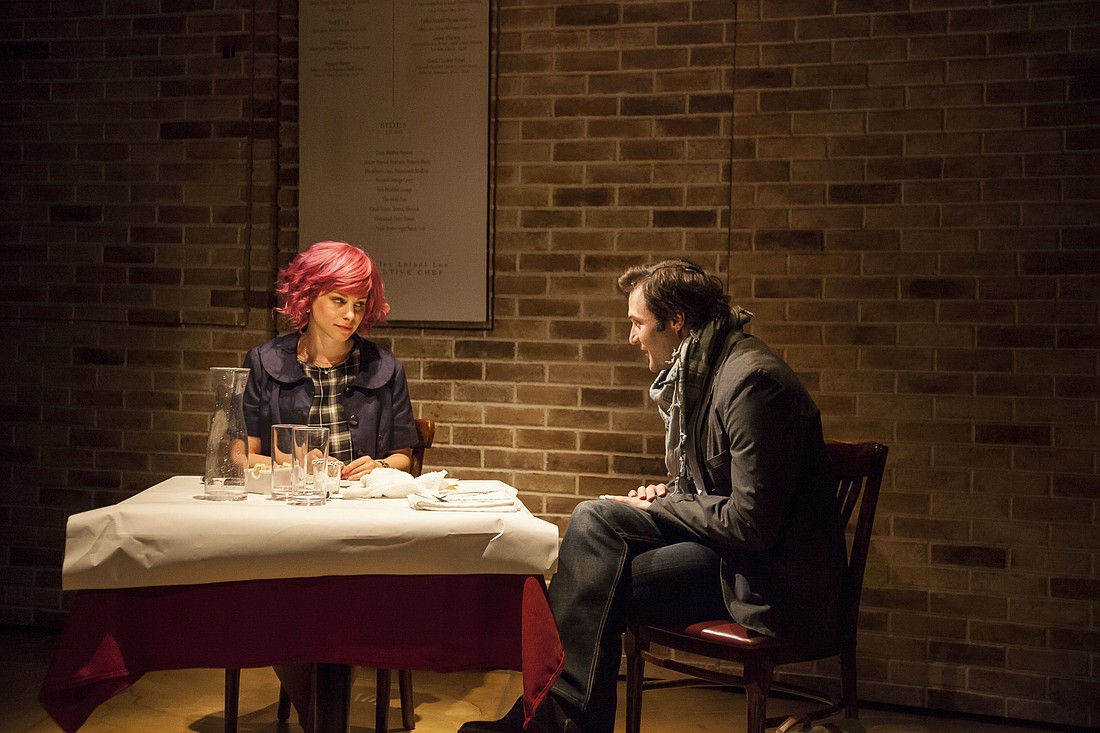
Florida Studio Theatre’s has recently invested in Victoria Stewart’s “Rich Girl.” Her play is a light-hearted take on Henry James’ dour novel, “Washington Square,” with a sprinkling of “The Heiress,” Ruth and Augustus Goetz’ 1947 theatrical adaptation. Updating an upscale slice-of-life from the late 19th century into the early 21st century involves both profit and loss.
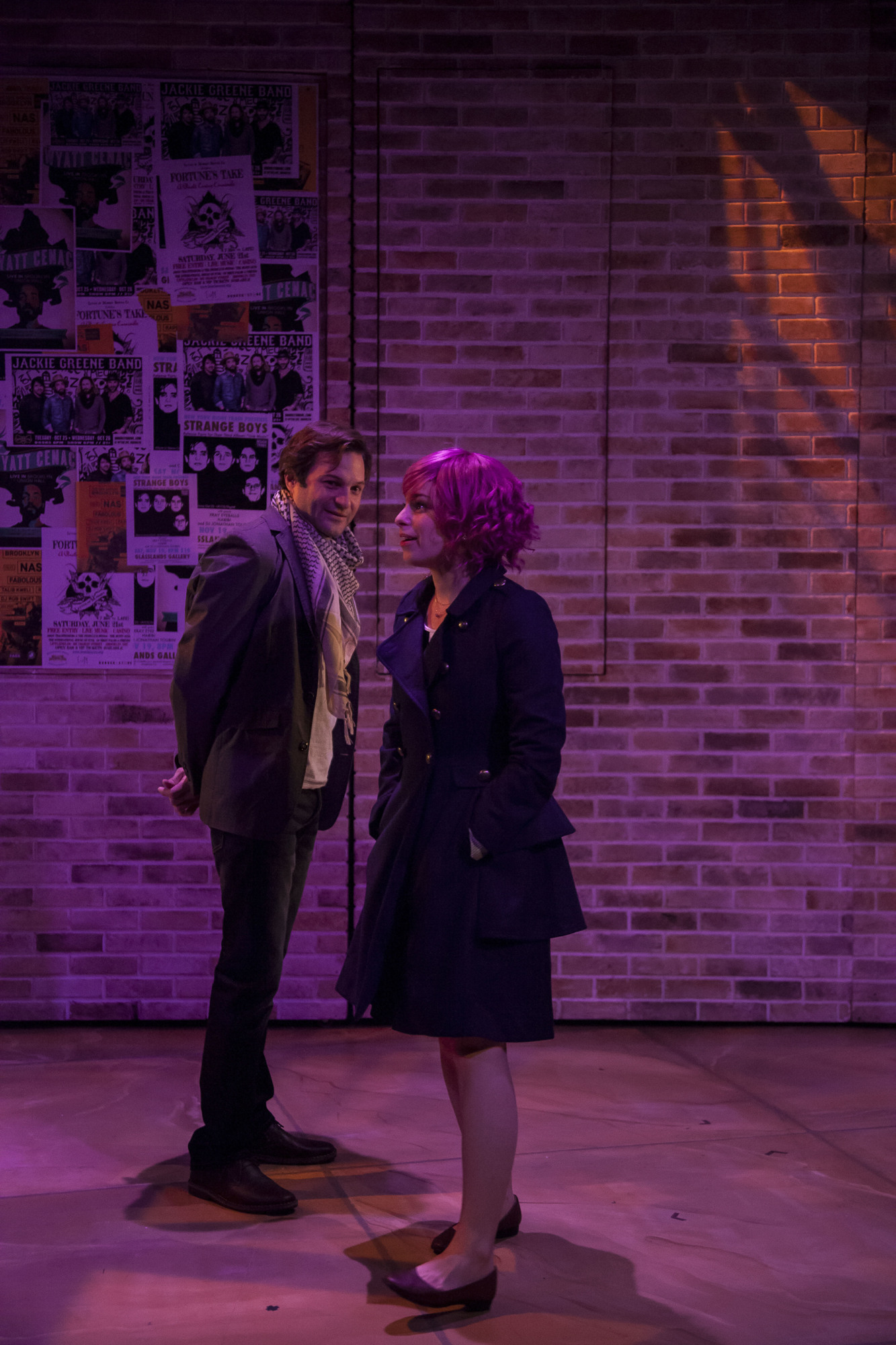
Claudine (Ali Rose Dachis) is our poor-little-rich-girl protagonist—a socially awkward klutz with violet-dyed hair. She lives with her mother, Eve (Allison Daugherty), in a penthouse in New York City’s upper east side. This matriarchal mastermind controls the purse strings, and not just at home. Eve’s a thinly disguised caricature of Suze Orman—a financial guru with her own hit TV show. Once upon a time, Eve put her husband through law school with a grueling waitress job.
The shyster graduated, promptly divorced her, and traded her in for a new model. That hand-on-a-hot-stove experience cauterized Eve’s heart, but there’s an upside! Eve’s painful life lessons make for a profitable TV show and a line of best-selling fiduciary self-help books. Her tips are both practical and heartless. These include:
Get a pre-nup!
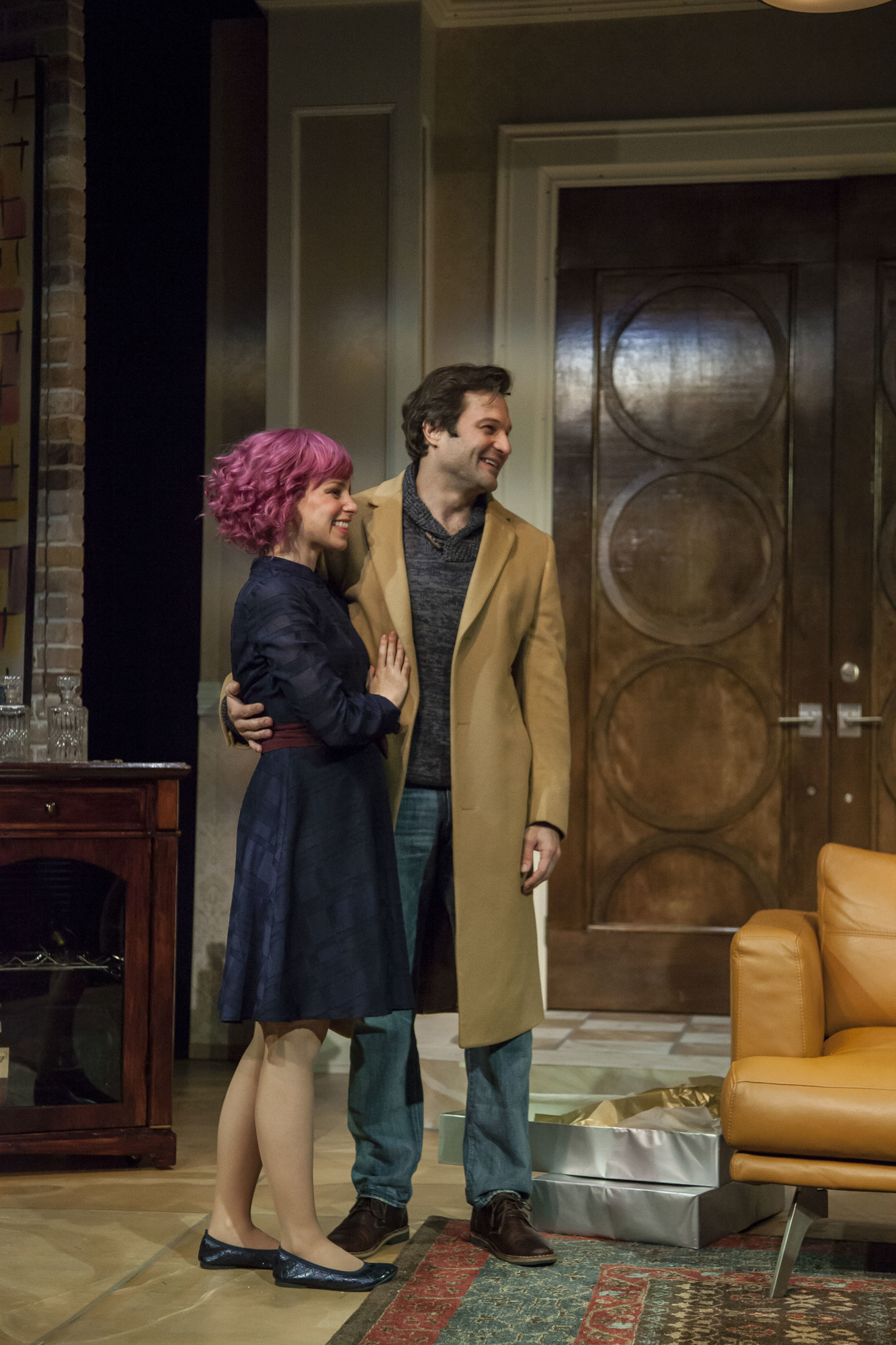
In this world, money isn’t everything; it’s the only thing.
Trust nobody and nothing—especially your heart.
Claudine violates this rulebook when she falls in love with Henry (Justin Adams), a charismatic, debt-ridden director. Mommy Dearest assumes he’s only in it for the money. She whisks her daughter away on a do-gooder trip to Africa before the couple can elope. After the trip, she gives Claudine an ultimatum: If you marry this low-rent auteur, I’ll cut you out of my will. Her daughter chooses love over money. But Mr. Right-or-Wrong splits for theatrical job opportunities in San Francisco. His motive?
He doesn’t want to sever Claudine’s relationship with her mother.
He was only in it for the money.
All of the above.
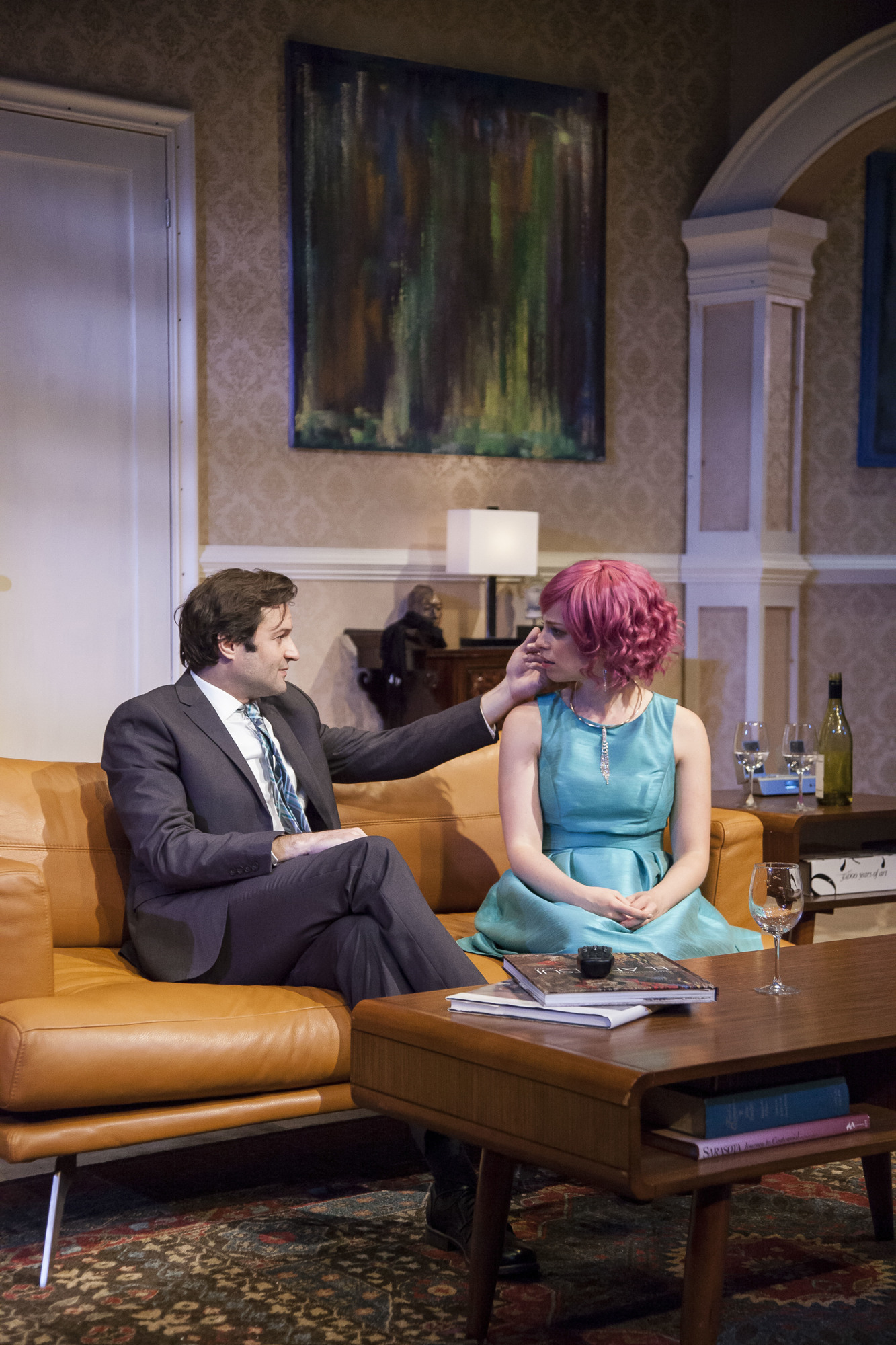
The playwright was determined to turn this material into a comedy—and, most of the time, she succeeds. Jessica Holt’s direction is lighter-than-air in the soap-bubble first act. In the second act, James’ harsh logic and steely-eyed observations of human folly seem to pull everyone down to earth. (I’m thinking of Ed Wynn, floating down from the ceiling in “Mary Poppins.”) Like it or not, it’s serious material. Clever one-liners and slapstick don’t change that. But you can’t fault the director for trying. Or the cast.
Dachis puts in a winning performance as Claudine. (She’s cute as a button; it requires a serious suspension of disbelief to see her as an ugly duckling.) Stewart’s play is essentially a coming-of-age story; there’s more to it than the inverse ratio of love and money. Dachis sells you on Claudine’s personal growth. Eve is the weak link of Stewart’s script; played broadly, she could resemble Cruella De Vil’s long-lost twin sister. Daugherty invests her with personality and history, and turns the caricature into a character. Eve’s learned her hard-hearted philosophy in the school of hard knocks. (And it might be my imagination, but she moves around chairs and tables with the fluid agility of a well-practiced cocktail waitress.)
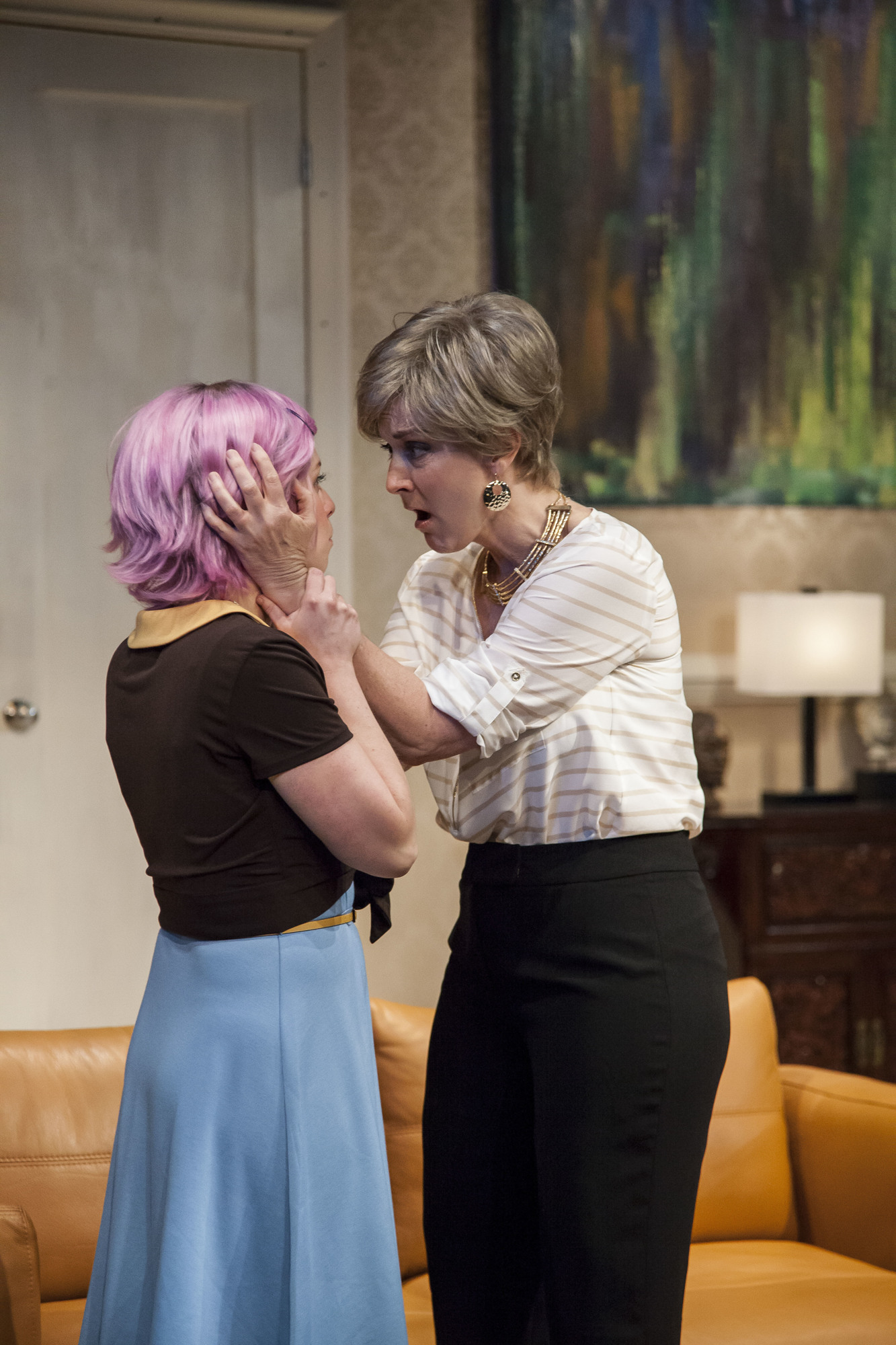
Eve protects her daughter with the ferocity of a mother lion. Her message inevitably comes across as: “You’re unlovable. If anybody says they love you, they’re lying.” Right or wrong, her insulting protectiveness severs the mother-daughter bond. The very funny Tanesha Gary does a top-notch job in the thankless task of portraying Maggie, Eve’s personal assistant. Maggie’s the reality principle, the bearer of bad news, and human lightning rod—and stands tall, despite the barrage of venal nonsense that come with the job description. Justin Adams gets the most thankless role of all: Claudine’s fiancé (or financé) Henry. Every synapse in your brain screams he’s a fortune-hunting fraud. But Adams’ performance is so sincere, unaffected and heartfelt, that the shadow of a doubt emerges. Maybe Henry is for real. Or maybe not. Either way, he’s a good actor playing a good actor.
Until things get heavy, this play will make you laugh. You can also feast on a wealth of eye candy. As F. Scott Fitzgerald should’ve said: “The very rich are different than you and me. They have more stuff.” Moriah Curley-Clay’s showoff-yet-tastefully-restrained set and Abby Parker’s dress-for-success costumes nicely illustrate the point.
A lot of hard-working talent, yes. But the play ultimately defaults on its implied contract with the audience.
Does Henry love Claudine? That’s the $64,000 question at the heart of the whole exercise. But you never get a definitive answer. Sorry.
The best you can hope for is a definite maybe.
If you’ve come for a dose of Love Conquers All, you may or may not be disappointed. Blame the iron logic of the original tale. A storyteller who follows in the footsteps of Henry James has few choices at the end of the road. Three, actually:
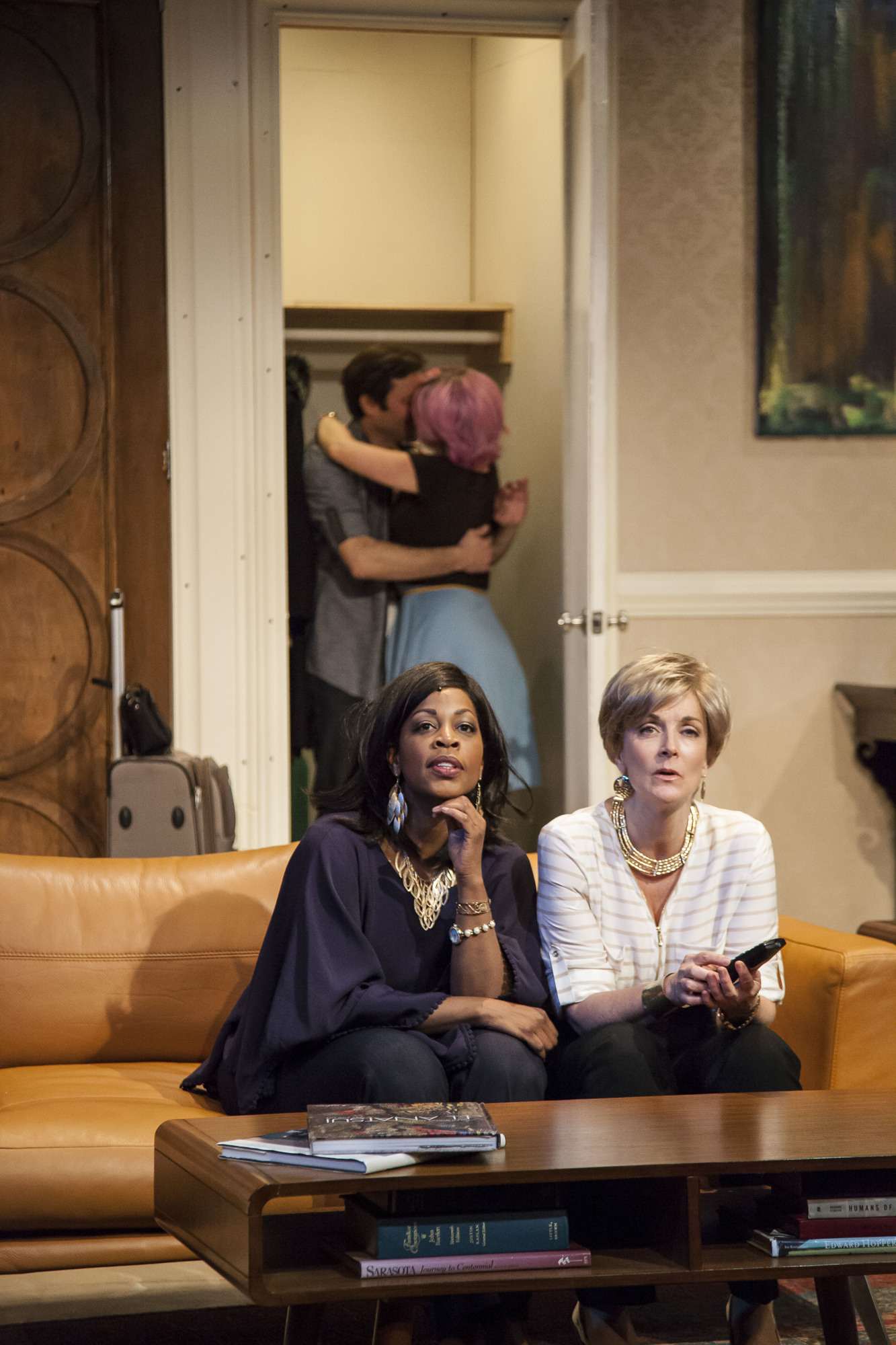
“The Heiress” ended with Claudine sitting alone in her ritzy apartment. Henry rings her doorbell, but she never lets him in. At the ending of “Rich Girl” …
Henry rings her doorbell, but she never lets him in.
Henry rings her doorbell and she lets him in for a full-throttle smooch.
Henry rings her doorbell. The lights fade to black and you never really know what her decision was.
The lovers and other strangers in our readership can debate which ending they’d prefer.
Or see the play for yourself and decide if you buy what it’s selling.
IF YOU GO
“Rich Girl” runs through May 26, at Florida Studio Theatre’s Gompertz Theatre, 1247 First St., Sarasota; 366-9000; floridastudiotheatre.org.